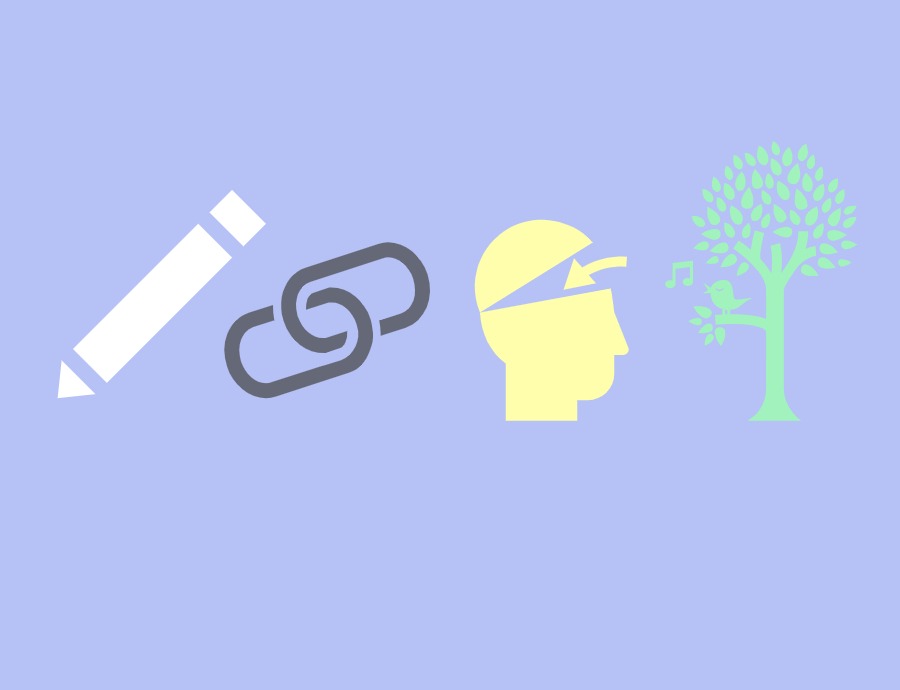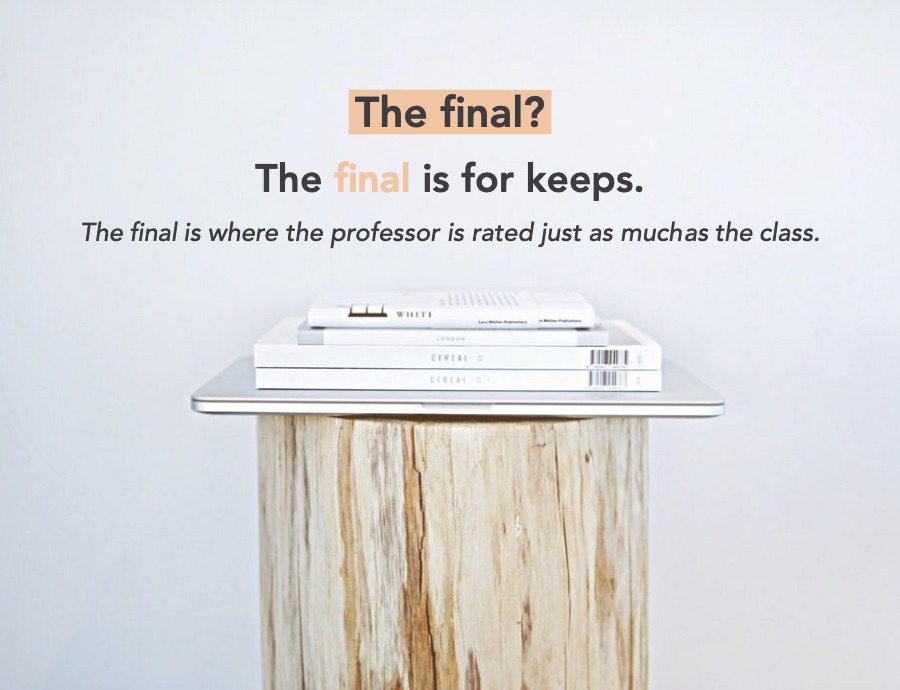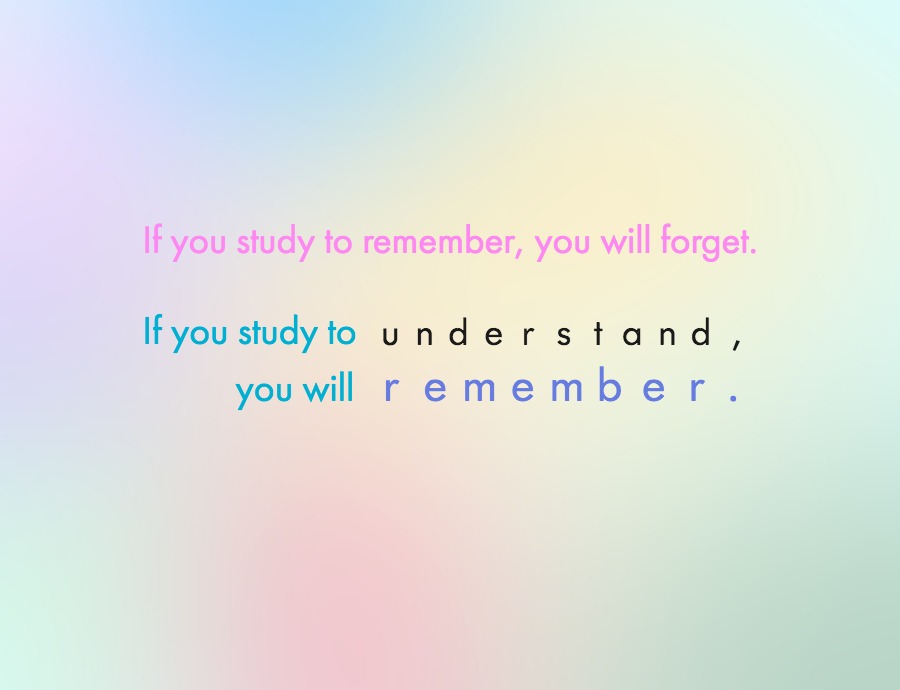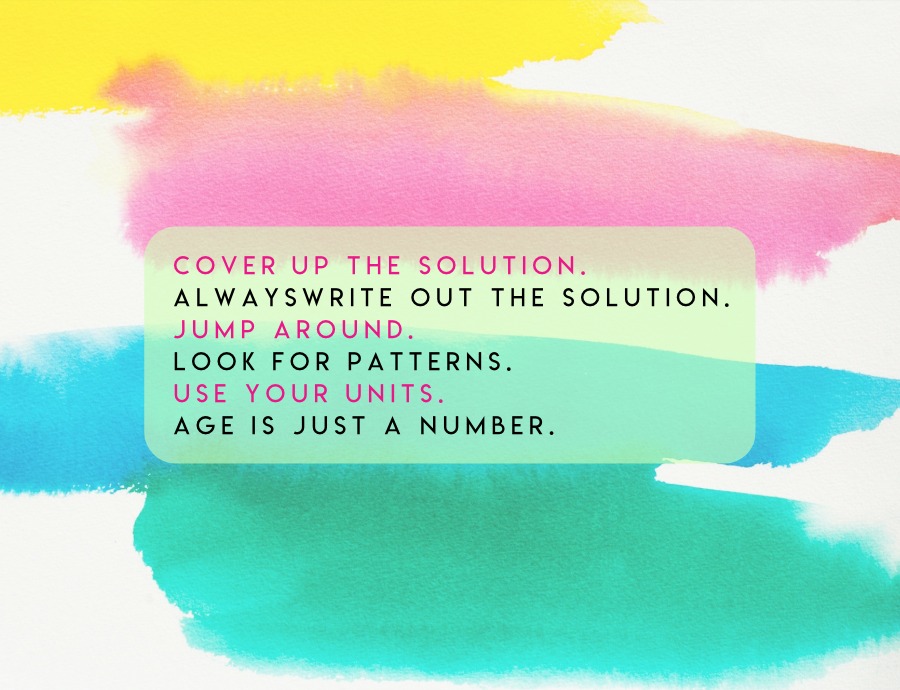Never ignore the numbers. There are lots in science and engineering exams! So many that some students start skipping them when practicing problems. But skipping the bits you don’t like isn’t practice, it’s the world’s worst pastime, because you’re not enjoying yourself but you’re certainly not doing the work. Recognizing some words then ignoring the numbers is how millions of people end up in appalling debt. Don’t follow their example – follow the figures to full marks instead!
Your problems are math all the way through. Just like all of reality, actually, but that’s much higher level science (and philosophy) than first year exams. Though the mathematical nature of existence is a wonderful backdrop for these calculation problems. When you’re practicing pages of problems there’s an urge to go “Oh yeah I recognize this problem, I know how to do it, I can quickly move on to the next to get this over with faster. Uh, I mean, practice more examples”
Did you spot the secret truth there? Or did you recognize something you’ve thought yourself, maybe a bit too often?
Anything you want to skip is the thing you need to practice. Skipping sections of your own answers is the worst kind of mistake: the kind of mistake which makes you make more mistakes. It’s also symptomatic of a serious flaw in studying strategy. Your goal isn’t to complete ten thousand problems, it’s to get better at doing problems. You can’t hand in ten thousand pages of scribbled (half) problems and ask the examiners to mark those. You’ll only be examined on exam day. And you’ll need to do those problems all the way through.
Calculator functions, fiddly fractions, rearranging rows in matrices or re-ordering equations for easier solving, there are countless ways to make calculations easier on the day. Many of these tips and tricks are specific to the sort of problem on each course. The more you do, the more you know. But you’ll get nowhere when you leave the problems unsolved.
There’s no point knowing the theory if you can’t deliver the numbers! Even worse than no point, there are far fewer marks. Especially in multiple choice exams, where the marks are all or nothing. You’re going to get marked on the full question. So do the full question!
Your problems are math all the way through. Just like all of reality, actually, but that’s much higher level science (and philosophy) than first year exams. Though the mathematical nature of existence is a wonderful backdrop for these calculation problems. When you’re practicing pages of problems there’s an urge to go “Oh yeah I recognize this problem, I know how to do it, I can quickly move on to the next to get this over with faster. Uh, I mean, practice more examples”
Did you spot the secret truth there? Or did you recognize something you’ve thought yourself, maybe a bit too often?
Your goal isn’t completing ten thousand problems, it’s getting better at each one.
Anything you want to skip is the thing you need to practice. Skipping sections of your own answers is the worst kind of mistake: the kind of mistake which makes you make more mistakes. It’s also symptomatic of a serious flaw in studying strategy. Your goal isn’t to complete ten thousand problems, it’s to get better at doing problems. You can’t hand in ten thousand pages of scribbled (half) problems and ask the examiners to mark those. You’ll only be examined on exam day. And you’ll need to do those problems all the way through.
Calculator functions, fiddly fractions, rearranging rows in matrices or re-ordering equations for easier solving, there are countless ways to make calculations easier on the day. Many of these tips and tricks are specific to the sort of problem on each course. The more you do, the more you know. But you’ll get nowhere when you leave the problems unsolved.
There’s no point knowing the theory if you can’t deliver the numbers! Even worse than no point, there are far fewer marks. Especially in multiple choice exams, where the marks are all or nothing. You’re going to get marked on the full question. So do the full question!








